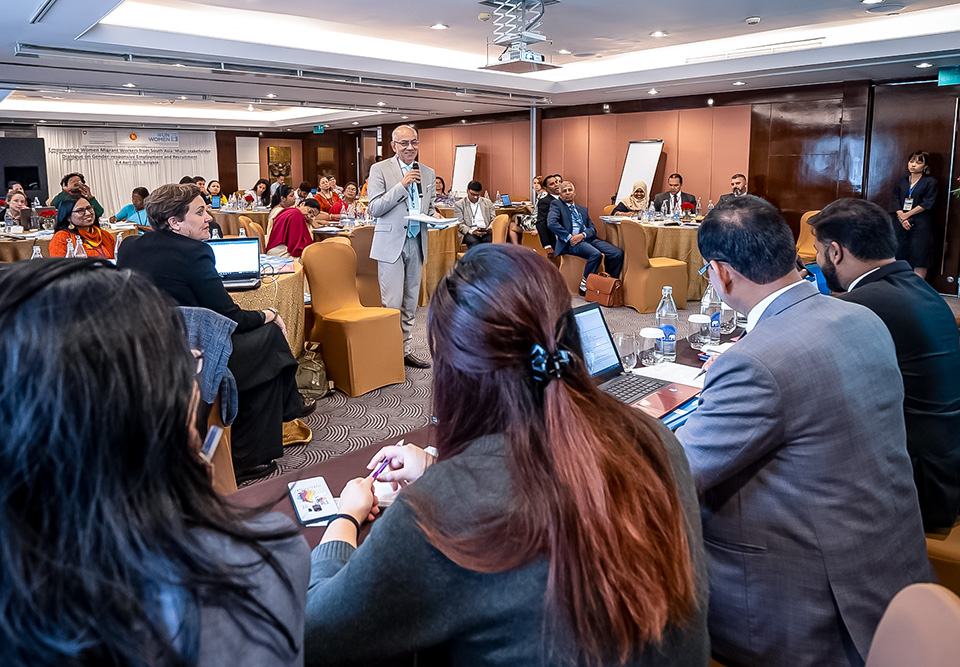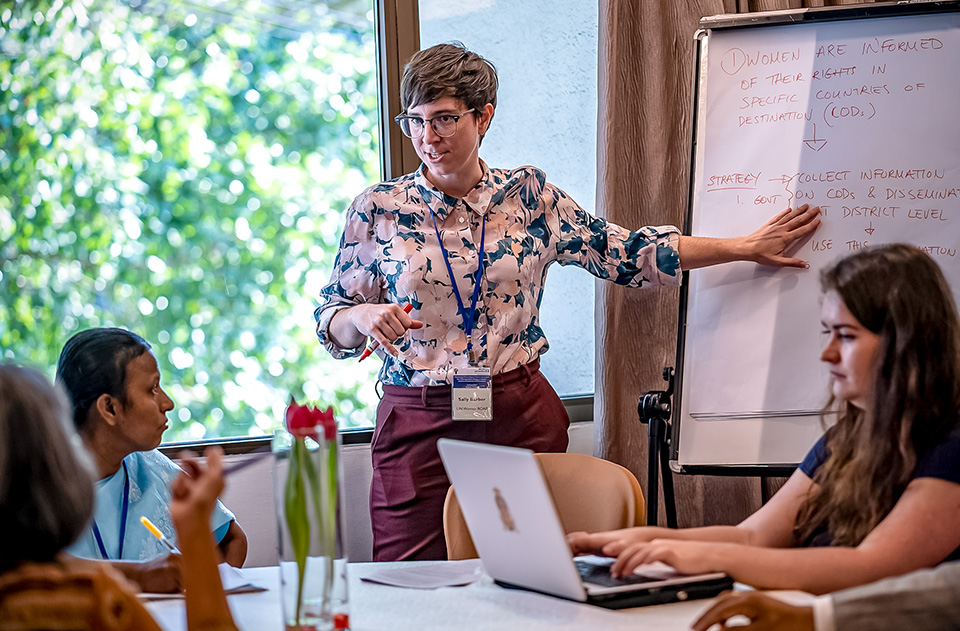Empowering and protecting women migrant workers through improved employment contracts
Date:
Author: Janice Wong Chi Kei, and Leo Bernardo Villar
Bangkok, Thailand — “They used to give me only a piece of bread in a day. Sometimes, they didn’t give me food for two to three days. I had no weekly holidays and I had to work 18 to 21 hours a day without rest. They didn’t let me contact my family members. If I requested to call my family members, they would complain to the recruitment agency and the officer would scold me and refuse my request of going back home.”
This story, from a woman migrant worker from Bangladesh, is unfortunately all too common. In pursuit of social and economic opportunities, more than three million women migrate for work from South Asia to the Middle East each year. Most of these women are employed in domestic work. But in almost all destination countries, domestic workers are partially or fully excluded from labour laws and regulations, putting them at increased risk of violence and exploitation.
In response, UN Women has launched Empowering Women Migrant Workers from South Asia: Toolkit for Gender-responsive Employment and Recruitment. It addresses three key areas essential to protecting and promoting the rights of women migrant workers. First, to be effective, labour migration governance needs to respond to the lived realities of women. Second, clearer consensus on employment contracts for women migrant workers is needed to ensure that improved policies translate into real-world protection. Finally, women need more effective services and protection during the recruitment process itself.
The Toolkit was developed with the generous support of the Swiss Agency for Development Cooperation. “The Government of Switzerland appreciates the manifold efforts of UN Women aiming at Empowering Women Migrant Workers in Asia in close collaboration with other agencies. We strongly endorse its advocacy for the protection and promotion of the rights of women migrant workers in the region,” said H.E. Ivo Sieber, Ambassador of Switzerland to Thailand.

At its launch during a Regional Dialogue in Bangkok, Thailand in April 2019, the Toolkit was supported by a broad range of actors including governments, recruitment agencies and civil society from across South Asia and the Arab States.
“We find the Toolkit very handy to assess ourselves and where we stand, what we shall do for further improvement to make the recruitment process more transparent and establish ethical practices,” said Shameem Noman, Secretary General of the Bangladesh Association of International Recruiting Agencies.
In addition to providing guidance for policymakers, the Toolkit can be used as an advocacy tool by civil society organizations. “The Toolkit is very useful for greater protection for women migrant workers. We can add to our campaigns the importance of knowing their rights as migrant workers based on the employment contract and we can incorporate it also to our ongoing campaign, especially for domestic workers,” said Mary Ann Abunda, founding Chairperson of Sandigan Kuwait.
Sally Barber, Programme Coordinator of Migration for UN Women’s Regional Office for Asia and the Pacific, agrees. “Women face disproportionate risks of exploitation, abuse and trafficking because of significant gaps in labour and human rights protections. But our consultations also show that governments, recruitment agencies and CSOs genuinely want to reduce these risks and are seeking clearer guidance on how to apply national policies and international standards in their daily work. The Toolkit supports these stakeholders to work cooperatively to ensure international standards and good practices are embedded into policies, employment contracts and recruitment practices.”

The Toolkit has generated vital momentum towards the empowerment of women migrant workers, and UN Women is responding to multiple requests to deepen its implementation. This includes developing communication tools so women migrant domestic workers themselves are aware of their rights. Moreover, UN Women is engaging governments and relevant stakeholders in Bangladesh, Nepal and Sri Lanka to develop strategies for national-level implementation, and countries across South Asia and the Arab States through the Abu Dhabi Dialogue and Colombo Process.